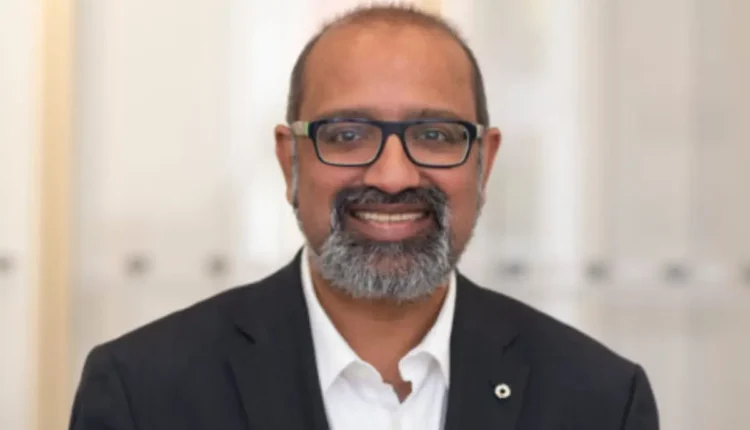In the modern political arena, leaders come from various backgrounds, but few have a journey as remarkable as Josef Philip Winkler’s. Born on April 5, 1974, in Koblenz, Germany, Winkler has built a career that stands as a testament to resilience, compassion, and service. From his early days in healthcare to his role as a political leader within the German Green Party (Bündnis 90/Die Grünen), Winkler exemplifies how a deeply rooted commitment to helping others can translate into political influence.
Early Life and Education of Josef Philip Winkler: The Foundations of Compassion
Josef Philip Winkler’s story is deeply influenced by his multicultural heritage. His mother, Chinnamma, hails from Kerala, India, and his father, Martin Winkler, was born in the German state of Saarland. This blend of cultures undoubtedly shaped Josef’s worldview, providing him with a unique perspective on inclusivity and global cooperation.
Growing up in Bad Ems, a town with deep historical roots, Josef Philip Winkler was surrounded by diverse influences. He completed his Abitur at the Goethe-Gymnasium in 1993, and from an early age, he showed a desire to serve. Instead of heading directly into politics or business, Winkler chose a path that revealed his compassionate nature: nursing. By 1997, he had obtained a professional degree in orthopedics and geriatric psychiatry, embodying a deep commitment to the well-being of others.
Political Beginnings: The Green Party’s Rising Star
Josef Philip Winkler’s entry into politics began at the youthful age of 16 when he joined the German Green Party. This early start laid the foundation for his future as a leader who merges activism with policymaking. While still a high school student, he quickly rose through the ranks to become a spokesperson for his local chapter. It was clear that his passion for change and a better society was more than just idealism—it was action in motion.
Josef Philip Winkler’s career in local politics was marked by consistent advocacy for environmental sustainability, social justice, and human rights. By the time he was 20, he was already serving as deputy chairman of his party’s group in Bad Ems’ city council. Between 1994 and 2003, Winkler continued to serve his community in various local political roles, eventually becoming a member of the Rhein-Lahn-Kreis district council. His tireless work in these early years earned him a reputation as a pragmatic but passionate leader dedicated to public service.
Member of the German Bundestag: Champion of Progressive Policies
In 2002, Josef Philip Winkler’s political career reached a new height when he was elected to the German Bundestag, where he would serve until 2013. Throughout his tenure, Winkler remained a steadfast advocate for issues that others often avoided. He was a member of both the Committee on Internal Affairs and the Committee on Petitions, ensuring that citizens’ voices were heard at the highest levels of government.
Josef Philip Winkler’s focus on immigration policy and democratic development revealed his unwavering commitment to building a more inclusive Germany. As a spokesperson for church policy and interreligious dialogue, Winkler promoted understanding among different religious communities, recognizing the importance of dialogue in a world often divided by faith.
Perhaps one of his most influential roles was as chairman of the Indo-German Parliamentary Friendship Group, fostering stronger ties between Germany and India. His efforts extended beyond parliamentary duties, as he actively participated in shaping foreign relations and representing Germany abroad. Winkler was not just a politician confined to domestic issues—he played a key role in global diplomacy, chairing delegations to countries like India, Nepal, Bangladesh, and Bhutan.
Building Interreligious Bridges: A Voice for Unity
One of Winkler’s most profound contributions was his work in promoting interreligious dialogue. As the Green Party’s spokesperson for church policy, he took on the challenge of bridging divides between religious communities in Germany. In a time when interfaith conflicts were rising globally, Winkler stood as a beacon of hope, advocating for cooperation and mutual respect.
His leadership extended to his involvement in the Central Committee of German Catholics, where he became the third member of the Green Party to be elected. In this role, he worked closely with religious leaders to navigate the complex intersection of faith and politics, ensuring that policies aligned with the values of inclusivity and compassion. His efforts in fostering harmony between faiths not only helped strengthen Germany’s social fabric but also inspired others to adopt similar approaches in their political careers.
A Leader in Rhineland-Palatinate: Continuing the Legacy
After serving in the Bundestag for over a decade, Josef Philip Winkler’s political journey didn’t end. In 2016, he was elected co-chair of the Green Party’s Rhineland-Palatinate chapter, a position he has held with distinction ever since. As a leader in state politics, Winkler continues to champion the causes he has long stood for—environmental protection, social equity, and human rights.
Alongside his co-chairs, including Katharina Binz, Jutta Paulus, and Misbah Khan, he has further strengthened the party’s presence in the state and has continued to advocate for a greener, fairer future for all.
Also Read:Aditya Kripalani: Mastering the Art of Cinema to Address Social Issues

